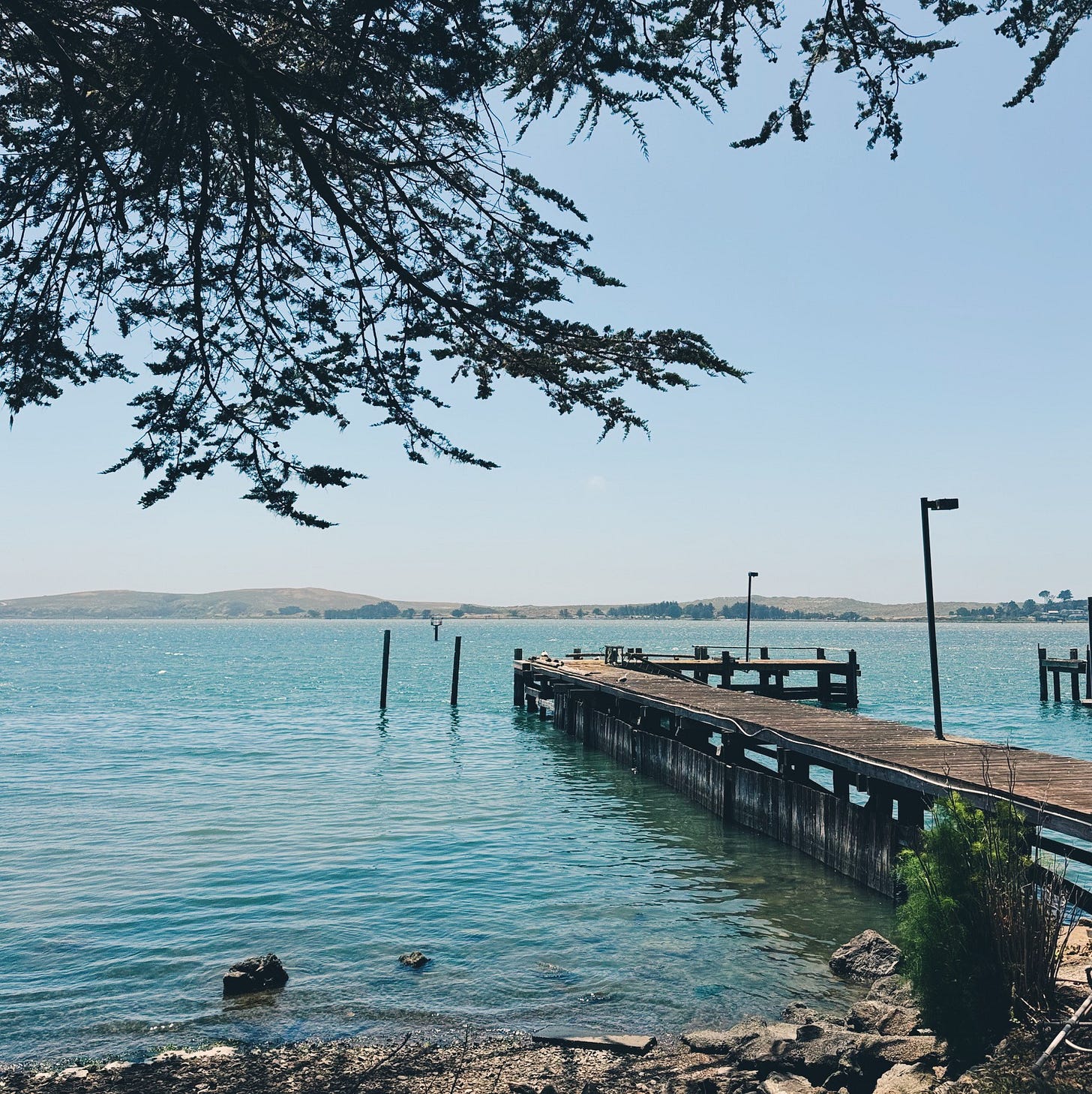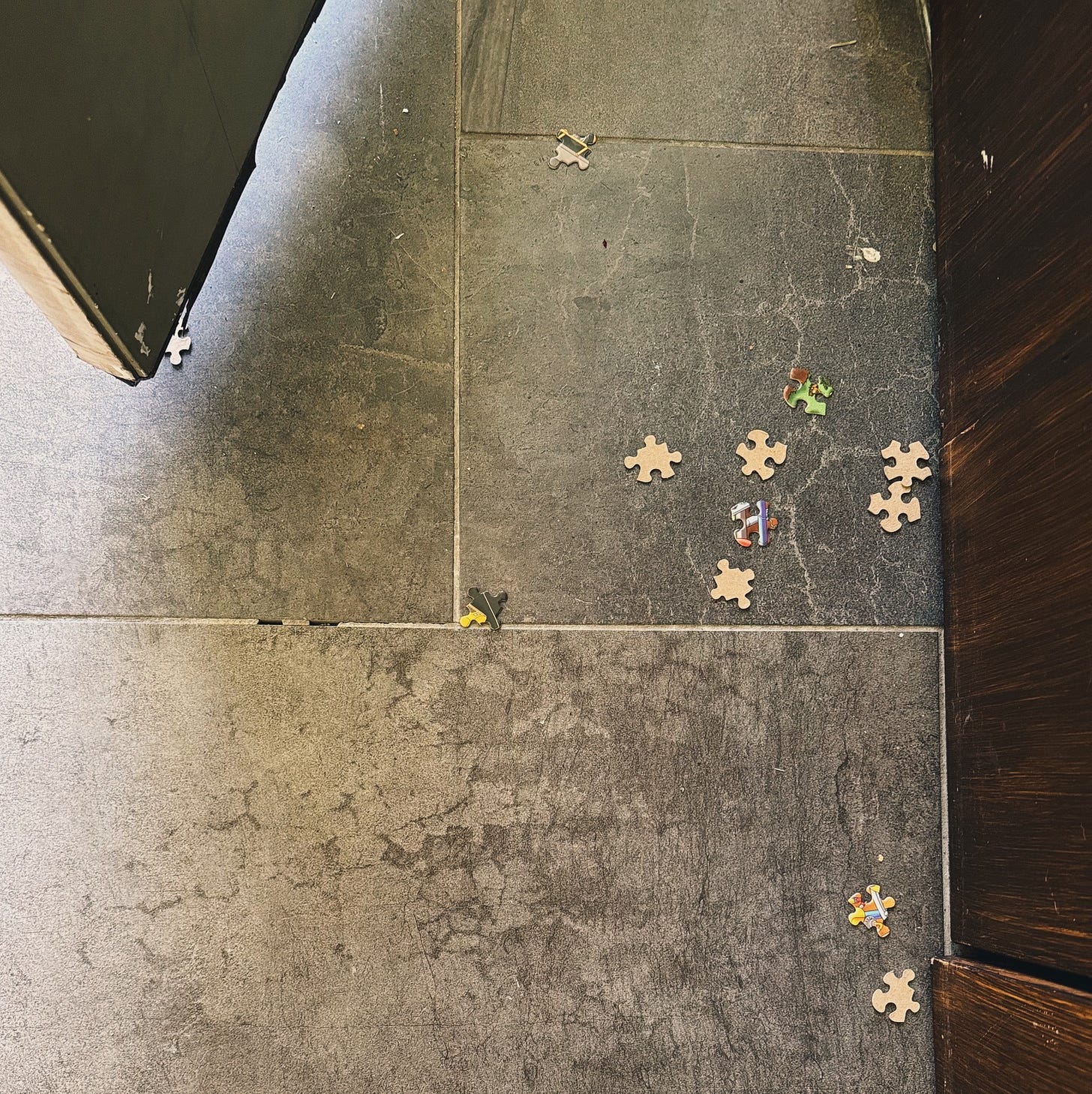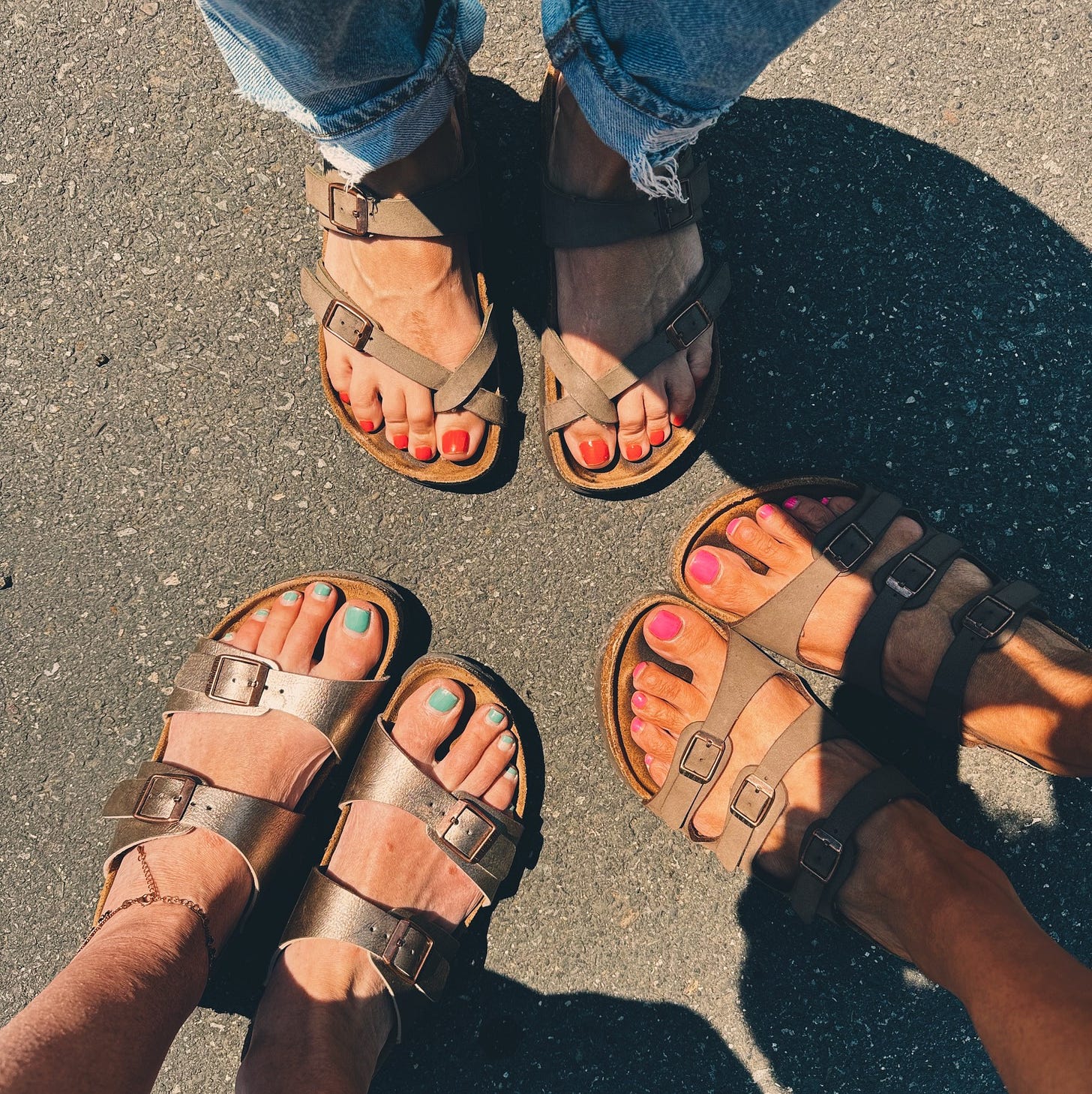No one’s ever ready for this: today, I helped my friend throw a funeral for her son. I say “throw” because it was a celebration of life, truly, but other parts made it feel like a party. There were balloons, bouquets of flowers, party favors, and people everywhere, but they were all in black, and many didn’t speak. I saw them sit blank-faced at picnic tables, waiting. I’ve thrown a lot of parties, but none like this. I want to say the guest of honor wasn’t present this time, but that isn’t true.
It was in a public park, and there were a few onlookers. A friend and I watched one woman wander over from the nearby pond and circle the snack table while her corgi sniffed for crumbs. Funeral crasher is a new concept for me. Behind us, a group of people held a gender-reveal party. While my friend held a microphone and preached the gospel of her son’s life, they popped crackers and screamed. It was a girl. People are still asking how the celebration of life went, and I respond with “Oh, it was beautiful. Everything went well.” And it’s true, the event went smoothly. But nothing is well about my friend’s loss. Our loss.
Earlier that morning, my friend, myself, and our two other ride-or-dies were in a bathroom with a long white counter and a mirror spanning the length of the wall. I am sitting in silence now, at almost midnight, remembering our exchange of small acts of grace. Someone curled another’s hair, someone did another’s eyebrows. We talked over each other, not too loudly, smoothed our black tops and black dresses, swapped out black belts, traded earrings, added one more coat of lip gloss. Maybe you know what I mean, the way we bond through a thousand movements that someone on social media was the first to shorten into GRWM: get ready with me. It took an hour to get ready, and yet none of us were ready. No one ever could be.
What we were really saying, preening in the bathroom, was Take care of yourself next to me. Own your beauty alongside me. Glow up while I witness it. Be as brave as you can. This is a sacred rite, to see and be seen, to tenderly care for our bodies, especially in the valley of the shadow of death. Bodies are more solid, here; we remember we are architecture of bone, rivulets of blood, palpably mortal, each of us.
A friend in Wyoming has a quote framed over her kitchen table. It’s by Walt Whitman and says, “We were together. I forget the rest.” She and I sat under that sign years ago, the first evening we spent together, and I don’t remember when we planned the night or what we talked about, but she sliced the steak while it bled on the cutting board, and we laughed, and the lighting was low and golden. It’s part of the holiness, forgetting the rest. Or not so much forgetting but allowing the inevitable erasure of what becomes periphery in light of the glory of Togetherness.
When tragedy visits, so much falls away, crumbling at the edges. It feels like a cruelty to lose a child and still have to fill your gas tank, call your car insurance, make dinner. Soon after the car accident, my friend and I sat on a blanket spread over her cedar deck, and while we looked into each other’s bleary eyes, I felt the disintegration of all that suddenly felt meaningless. The need for more dish soap, the full hamper, the overripe avocados I didn’t want to waste, the details I made central, the bullets on my to-do list that previous week grew pixelated until they blinked off the screen entirely.
The day after the celebration of life, I stopped by a home where friends were moving out. The house was already empty, and the clean-up crew of friends needed lunch. We brought them a dozen burgers and two greasy bags of fries and grazed together, standing in a semi-circle around the kitchen island. Later, we stood chatting at the front door, and something caught my eye. At the floor of the entry closet, I thought it was a smattering of dried leaves, perhaps brought in on the soles of movers tracking in and out. But when I stepped closer, the bits became puzzle pieces, presumably lost from a box once stored in the closet. They were debris left behind, hinting at a hurried sorting where whole stacks of things were swept into bags. I took this picture. I cannot stop hearing what it tells me: we are often left standing among pieces that no longer fit.
When we lose the picture we’d built upon for so long, it’s disorienting. The corner pieces are gone, as are the straight edges we trusted to keep the picture contained. It feels terrifying to lose a story, a reality you lived in and loved. I’ve felt the panic myself, unwilling to let go of what I ultimately had no power to preserve. Maybe it’s a thing of childhood to stick to two dimensions anyway. To plot things on an X-Y axis and find every perfect piece that snaps into place. Maybe grief adds, or even becomes, a third dimension, opening up a depth that a box top can never capture.
I wonder how many times the picture of my life has been changed out. How many people have I lost and gained in each iteration? Who will be standing next to me to witness the next version?
What do I do with the pieces that no longer fit? I feel like I should throw them out. But it feels so hard to do. They hold miniature glimpses of a reality that shaped me. Even if I was miserable, I still want a kind of souvenir. I still want to remember how that picture made me feel. I am not ready to bury the me that lived and breathed among those pieces. So sometimes I take the pieces and give them to my friends. They carry them around and keep them in their pockets, bearing those images of me and my old life, the one I can’t hold onto. By keeping precious parts of what I’ve lost, my friends take the edge off the grief, though we still cry. Maybe a lot.
I just washed my face. I took a larger than usual swipe of face cream from its glass jar and spread it out onto my skin, not because I believe in anti-aging, but because I believe in nourishment at all my ages. I’ll take care of myself, my body, my heart, my spirit, and you take care of yours. Because sometimes we triage. Sometimes there are inexplicable and horrifying emergencies. Still, someone needs to order the burgers, someone should wipe the grease off the counter. Someone will kiss you on the cheek. Someone will throw her head back and laugh because there is nothing to be done. And all of us will suspect, secretly, that we might be going crazy, because grief is a desperate and hungry animal. But the biggest surprise is that it is fed, calmed even, by friendship.
I never want to throw a funeral for a kid again. It was one of the dumbest, worst things I’ve ever done. It felt upside-down on every level except one. We were together. I forget the rest.
You are the Beloved.
Leslie
September SoulCare Circles start next week. If you’re interested in joining a group session, this month’s topic is “When life doesn’t turn out how you planned.” Choose from Wednesdays at 11 AM PST or Thursdays at 6 PM PST for four weeks. Groups are all women, confidential, 60-minute virtual hang outs over Google Meet with an extra 30 minutes weekly for more casual questions and chatting. Reply to this email for more info, or drop your email in a comment and I’ll send you the details. Create some margin for your own SoulCare this fall. These groups are really special. I love the story-sharing and encouragement that takes places, and it’s some of my favorite time spent each week. If group sessions aren’t for you, I offer 1:1 SoulCare as well. Anyone can request a free, 20-minute consultation. Let’s talk soon.










Beautifully written. As a momma of a childhood cancer survivor, I have walked alongside many other mommas whose children died from their cancers. I’ve attended many child funerals. It’s the most tender, humbling place to be in. Your words express this liminal space so well.
I really enjoyed this piece. Thanks for sharing your heart.